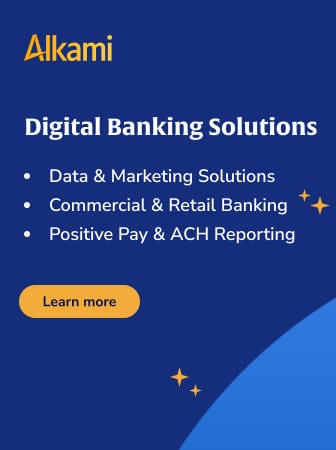The average human attention span, defined as the amount of time that people can focus on a specific task without getting distracted, is 8.25 seconds, according to a widely cited 2015 study by Microsoft Corp. based on brain scans and surveys. Though the results can vary widely from one person to the next and depend on factors like the person’s level of interest in a task, attention spans in general decreased by almost 25% between 2000 and 2015, the study found.
Video marketing offers a unique edge in overcoming this hurdle to connect with modern consumers. The study itself even suggested that marketers use rich media and movement to grab attention.
Executed effectively, commercial and social media videos can be a powerful advertising tool, helping a brand to stand out in a crowded newsfeed or inbox. Better still, if you can create captivating content that runs under 60 seconds, you can maximize impact without losing your audience.

The unfair advantage for financial brands.
Offering aggressive financial marketing strategies custom-built for leaders looking to redefine industry norms and establish market dominance.

Success Story — Driving Efficiency and Increasing Member Value
Discover how State Employees Credit Union maximized process efficiency, increased loan volumes, and enhanced member value by moving its indirect lending operations in-house with Origence.
Read More about Success Story — Driving Efficiency and Increasing Member Value
How Effective Is Video Marketing?
Video has been growing in popularity with marketers. It allows brands to convey their message in a succinct and creative way, distill complex topics into digestible content, and use visual effects to get attention and make a more memorable impression.
Here are some of the reasons video marketing works.
Captivating Visuals
Humans are naturally drawn to visual stimuli. Our brains can process images very quickly, with at least one study from MIT suggesting it can do so even with images the eye sees for as little as 13 milliseconds.
Consider this: social media users scroll through their newsfeeds seeing text post after text post. It all blurs together, until they see a video. The movement automatically draws attention, leading them to stop and watch for a few seconds.
Those few seconds are the golden opportunity to get them hooked.
Read more: Community Banks Are Missing Out on the Value of Social Media
Emotional Connections
Video content can be effective at eliciting emotional responses from viewers, in part because it uses verbal and nonverbal cues to convey messages.
Tone of voice, facial expressions, musical touches, and graphics are just a few elements that can combine to impact audiences on a deeper level than written communication or a static image.
Cultivating this emotional connection not only fosters deeper ties between a brand and its audience but improves retention and recall. Even when it comes to movies, television, and commercials, people are more likely to remember what they watched compared with what they read.
This helps a brand stay top of mind and build greater affinity over time.
The Distilling of Complex Information
For some brands, products or services, it’s extremely difficult to explain the unique value propositions or benefits in a simple, straightforward way that appeals to a broad audience. Financial services are a category where this challenge is especially pronounced.
Whether it’s a complex process, a technical product feature, or useful data, conveying that information in video instead of text can make it more accessible to the audiences who need it most.
Visuals, animations, graphics, and slides can help users understand and retain information more easily. If they understand your product or service — or better yet, understand how it translates into real-world value for them — they’re more likely to buy into it.
Read more: How to Integrate Video into Bank and Credit Union Marketing
Retention Rates
Research indicates that people remember more of what they see in a video compared with what they read — which makes video a useful tool for improving brand recognition.
No matter how compelling your message is, it won’t matter if people soon forget it. When a message captures their attention and sticks in their mind, your brand is likely to be the first that comes to mind when they need what you have to offer.
The Ability to Capture Attention
Ideally, the first few seconds of a video should draw the viewer in. This is all the time a video has to foster a connection with viewers by addressing their interests or pain points. Doing this effectively helps the video stand out against the sea of content online.
The introduction is the most important part of conveying the video’s value proposition to the viewer. It needs to show them what’s in it for them if they take 60 seconds of their day to watch, and it needs to compel them to continue.
Investing time and being creative in crafting the introduction is the key to retaining viewers, forging a connection, and delivering a message that resonates.
How to Craft a 60-Second Video That Stands Out
Here are some things to keep in mind in the effort to develop riveting videos of 60 seconds or less.
1. Hone the Message
Your video needs a clear, defined message or concept. Keep it narrow, otherwise the message will feel vague, and you’ll lose your audience. Think about what you want your viewers to take away from the video, then work with that until you can distill that message into a succinct, powerful and easily communicated message.
Read more: How a Small-Town Bank Boosted Its Video Views by 800%
2. Know the Audience
Understanding your target audience is the most important aspect of creating videos that resonate. Do you know the pain points of these ideal viewers? What they’re interested in? What challenges they face in their day-to-day lives that your product can address? When you know what the audience wants and needs, you can refine the content to ensure that you’re speaking to them directly and showing your value.
3. Add Strong Visuals
Videos are a visual medium, so you have to get the visuals right. You have to captivate viewers while sharing your message, so consider the ways you can make the message more digestible and interesting. High-quality images, engaging animations, cutaway footage, and smooth editing can go a long way. Make every second count.
Read more: People Love Watching Short Web Videos
4. Keep It Simple
While you can benefit from some magic in the form of different visual effects, don’t go overboard. Simple is always better, especially if the concepts you’re covering in your video are complex. Remember, you only have 60 seconds, so avoid overcomplicating the content. Focus on the core message and keep it all clear and concise.
5. Perfect the Hook
Don’t forget those initial few seconds! They’re the key to getting viewers to watch in the first place. There are plenty of ways to capture attention, such as asking a provocative question, making an announcement, sharing a statistic, or making a bold statement. Once you have them hooked, they’re more likely to listen to what else you have to say.

6. Include a Call to Action
Your video needs a clear call to action, or CTA. At the end of the video, tell viewers the next step to take. This needs to be short, impactful, and persuasive. It might encourage viewers to share the content on social media or visit your website to learn more, make a purchase or sign up for a service.
Video content offers a lot of benefits, from capturing people’s attention to boosting retention of marketing messages and driving sales. Using these tips, you can craft captivating videos that keep viewers hooked until the end.
About the author:
Torrey Tayenaka is the co-founder and chief executive at Sparkhouse, a commercial video production company in Costa Mesa, Calif.







